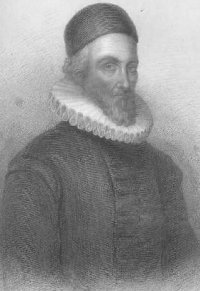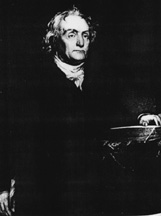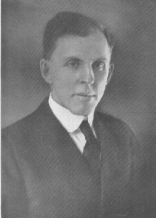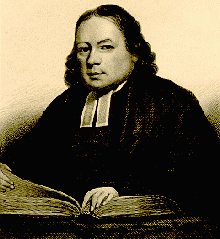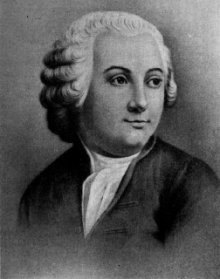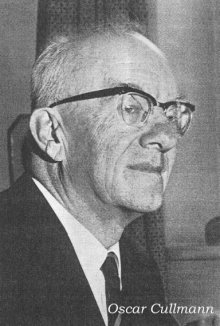- Cadbury, Henry
- (1883-1974)
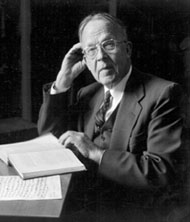
Henry Cadbury
- US NT scholar
- Society of Friends
- he warned of dangers of modernizing Jesus and of archaizing our faith
- Caird, Edward
- (1835-1908)
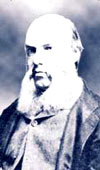
Edward Caird
- British professor at Glasgow and Balliol College, Oxford
- wrote The Evolution of Religion
- Held Absolute Idealism
- See entries in
- Caird, John
- (1820-1898)
- Scottish pastor, theologian, philosopher
- neo-Hegelian
- authority on Spinoza
- See entry in 1911 Encyclopedia
- Cairns, John
- (1818-1892)
- Scottish pastor served 30 years in one church
- See entry in 1911 Encyclopedia
- Cajetan, Thomas de Vio
- (1469/70-1534)

Cajetan
- Dominican cardinal, theologian, philosopher
- defended power and authority of pope
- tried to persuade Luther to recant
- See entry in
- Calderwood, David
- (1575-1650)
- Scottish Presbyterian pastor.
- See entry in 1911 Encyclopedia
- Calixtus, George
- (1586-1656)
- developed a school of thought based on a system of principles known as syncretism in which he attempted to harmonize the sects of the Protestants and ultimately the whole church
- He was opposed by Abraham Calovius
- Calovius, Abraham
- (1612-1686)
- German Lutheran
- defended strict orthodoxy
- against Syncretists and George Calixtus who wanted to unite Lutheran, Reformed, and Roman Catholic churches.
- See entry in 1911 Encyclopedia
- Calvin, John
- (1509-1564)

John Calvin
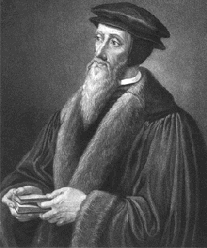
John Calvin
- French scholar who studied law
- key figure of Reformation because of his Institutes of the Christian Religion
- criticized for his stern theology and discipline
- preached 3000 expository sermons in 15 years
- wrote commentaries on 49 books of Scripture
- See entries in
- CALVINISM
-
- The view which John Calvin taught
- Also called Infralapsarianism or Soft Determinism
- Doctrine described by the acronym TULIP
- Total Depravity or Total Inability
- Men are dead in sin
- Man is under the curse of the sin of Adam
- Man is totally unable to love God
- Man is unable to do anything meriting salvation
- Unconditional Election
- God, from the beginning of time, determined to choose and save certain individuals
- His choice was not determined upon some foreseen merit in them
- It was not based upon the possibility of whether they would choose God or not
- It was based on God's sovereign right and wisdom (which He did not reveal to us)
- Limited Atonement or Quantitative Limited Atonement
- Deals with the question: "Did Christ die for the whole human race or for a special group of people?"
- Deals with the question: "Did Christ make salvation certain or merely possible?"
- The atonement is limited in number not quality. Christ died only for the elect.
- God did not reveal to us the identity or the number of the elect
- Irresistible Grace or Efficacious Grace
- When God saves a man, He gives him a grace that changes him (i.e., regenerates him) so that he gladly agrees with it and will not resist it
- God enlightens his mind to be able to understand the things of God
- God renews his will
- God draws him to Christ
- The convert comes willingly and freely because he is made willing by God's grace
- Perseverance of the Saints
- Sometimes this position is erroneously called "Eternal Security," but that term belongs to Hyper-Calvinism
- Those who are true Christians (i.e., Saints) will remain holy Christians through good times or rough
- Salvation is not so much a guarantee of heaven as it is a life of holiness
- The man who says that he is saved, but lives in habitual sin has deceived himself -- true salvation results in holiness
- Total Depravity or Total Inability
- Also see Congruism.
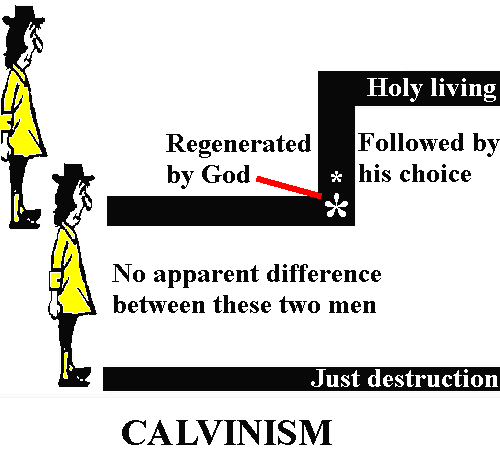
- CALVINIST
-
- A person who holds to the doctrines and emphasis of Calvinism
- Campbell, Alexander
- (1788-1866)
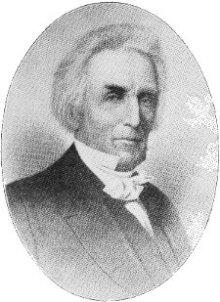
Alexander Campbell
- One of the founders of Christian Church (Disciples of Christ) as a movement to end denominationalism
- followers are called Campbellites
- son of Thomas Campbell
- Campbell, Charles Arthur
- (1897-1974)
- British professor at Bangor Wales and Glasgow
- wrote
- Skepticism and Construction
- On Selfhood and Godhood
- Held Absolute Idealism.
- Campbell, Reginald John
- (1867-1956)
- British Congregational who became Anglican
- preached controversial "new theology" that led to his resignation
- wrote The New Theology
- Held Absolute Idealism
- See entry in 1911 Encyclopedia
- Campbell, Thomas
- (1763-1854)
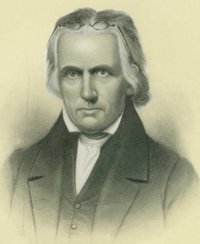
Thomas Campbell
- Scottish-Irish pastor
- also founded Christian Church (Disciples of Christ).
- Camus, Albert
- (1913-1960)
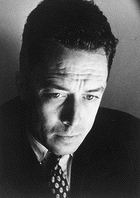
Albert Camus
- Existential philosopher, novelist, playwright
- wrote
- The Rebel
- The Plague
- emphasized the absurd
- Cargill, Donald Daniel
- (c1619-1681)
- Scottish Covenanter pastor in Glasgow from c.1655 until 1662, when he was expelled for denouncing the Restoration and resisting the establishment of the episcopacy in Scotland
- After escaping wounded from the battle of Bothwell Bridge (1679), he joined Richard Cameron in the Sanquhar Declaration (1680) against Charles II
- Cargill, having excommunicated the king, the duke of York, and others, was arrested and executed.
- See entry in 1911 Encyclopedia
- Carlstadt, Andreas Rudolf Bodenstein von
- (c 1480-1541)

Carlstadt
- German reformer
- defended Ninety-five Theses in debate against Eck
- condemned with Luther in papal bull
- went beyond Luther's views and split from him
- influenced Swiss Anabaptists
- Carnahan, James
-
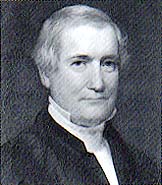
James Carnahan
- President of Princeton from 1823-54
- Carnap, Rudolf
- (1891-1970)
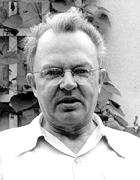
Rudolf Carnap
- Logical positivist
- member of the Vienna Circle
- propositions of science can be verified by experience
- rejected correspondence theory of truth
- wrote
- Logical Syntax of Language
- Philosophy and Logical Syntax
- Meaning and Necessity: A Study in Semantics and Modal Logic
- Logical Foundations of Probability
- The Continuum of Inductive Method
- See entry in Internet Encyclopedia of Philosophy
- Carneades
- (214-129 BC)
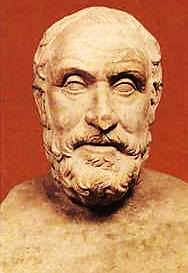
Carneades
- Greek philosopher
- studied under Diogenes the Stoic, but reacted against Stoicism and joined the Academy, where he taught a skepticism similar to that of Arcesilaus.
- He denied the possibility of absolute certainty in knowledge
- it is disputed whether he held that probable knowledge was adequate to guide a person's actions
- He recognized three degrees of probability, and his teaching anticipated modern discussions of the nature of empirical knowledge
- See entry in Internet Encyclopedia of Philosophy
- Carnell, Edward John
- (1919-1967)
- leader of new evangelicalism
- emphasized evangelical scholarship
- taught at Fuller theologian Seminary
- wrote
- An Introduction to Christian Apologetics
- Christian Commitment
- The Case for Orthodox Theology
- Carroll, Benajah Harvey
- (1843-1914)

B. H. Carroll
- Southern Baptist preacher
- founded Southwestern Baptist Seminary
- had photographic memory
- Carson, Alexander
- (1776-1844)
- Scot who preached 41 years in one church in Ireland
- Wrote Baptism: Its Mode and Subjects
- Carson, D. A.
-
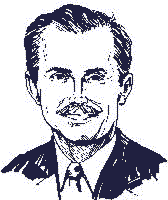
D. A. Carson
- Canadian
- Professor of New Testament at Trinity Evangelical Divinity School (TEDS)
- author or editor of many Christian reference works including
- Divine Sovereignty and Human Responsibility
- From Sabbath to Lord's Day
- Carstares, William
- (1649-1715)
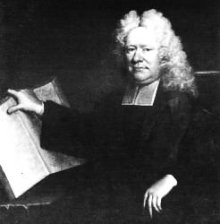
William Carstares
- Church of Scotland preacher
- See entry in 1911 Encyclopedia
- CARTESIAN METHOD
- Descartes
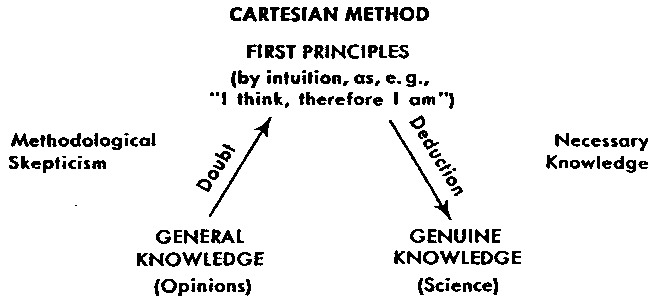
Cartesian Method
- CARTESIANISM
-
- A form of Intuitionism which states that the mind is capable of knowing innate ideas without reasoning.
- Cartwright, Peter
- (1785-1872)
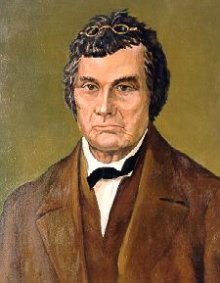
Peter Cartwright
- US Methodist
- circuit-riding preacher who started many churches in frontier US.
- Cartwright, Thomas
- (1535-1603)
- Presbyterian Puritan
- wrote Holy Discipline
- imprisoned several times for defense of Puritanism.
- See entry in 1911 Encyclopedia
- Cassirer, Ernst
- (1874-1945)
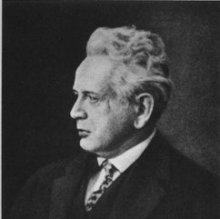
Ernst Cassirer
- German philosopher and historian of ideas, leading exponent of neo-Kantian thought
- wrote The Philosophy of Symbolic Forms
- CATEGORICAL IMPERATIVE
- A moral command that is unconditionally and universally binding (Kant).
- CATEGORY TRANSGRESSION
- According to linguistic or analytical philosophy, a transition from one type of proposition or "language game" to another.
- CATHARI
-
- a medieval hertical group which began in the early 11th century as an outgrowth of Paulicians and Bogomils.
- Followers were persecuted by the Inquisition and several crusades; they were burned at the stake.
- They were dualistic docetic and very ascetic (opposed marriage)
- rejected sacraments
- believed themselves to be the only true church
- divided into Perfect (the only ones saved) and the Believers
- believed in reincarnation
- rejected purgatory and indulgences
- practiced suicide by starvation
- pacifistic
- Also called Patarenes or Albigensians
- CAUSALITY
- See Causality method and "Causality principle"
- CAUSALITY METHOD
- You can understand God by investigating the creation and attributing to Him whatever characteristics were necessary to cause it.
- CAUSE
-
- A relation between events, processes, or entities in the same time series so that when one occurs, the other invariably follows.
- When the relation is conceived as necessary, the doctrine is hard determinism.
- When the relation is viewed as constant conjunction, the doctrine is soft determinism or positivism.
- Also see
- CAUSE, MULTIPLE
-
- J. S. Mill said that cause is "the sum total of the conditions positive and negative taken together which being realized, the consequent invariably follows."
- CAUSES, FOUR
-
- Aristotle's theory that cause is not only efficient (as an act or a force) but also material (as the potential of matter), formal (as something directed according to plan), and final (as something initiated by some purpose or end).
- This theory of cause is seen in terms of a resulting end which is aimed at, but as yet it does not exist.
- Gerson
- Jean Charlier
- Chaderton, Laurence
- (1546-1640)
- English Puritan
- helped translate KJV
- See entry in 1911 Encyclopedia
- Chafer, Lewis Sperry
- (1871-1952)
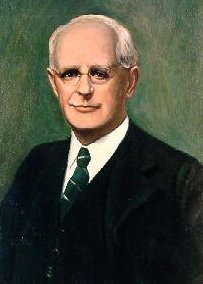
L. S. Chafer
- Dispensational theologian
- founded Dallas Theological Seminary
- edited Bibliotheca Sacra
- wrote
- Systematic Theology
- The Kingdom in History and Prophecy
- Major Bible Themes
- Chambers, Oswald
- (1874-1917)
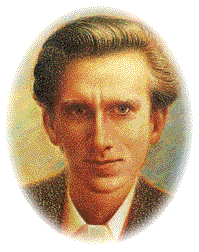
Oswald Chambers
- British Non-conformist preacher and devotional writer
- wrote My Utmost for His Highest
- CHANGE
- Four factors of change
- Channing, William Ellery
- (1780-1842)
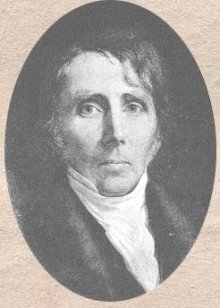
William Channing
- US Unitarian liberal pastor and theologian
- preached on fatherhood of God and brotherhood of man
- Chapman, John Wilbur
- (1859-1918)
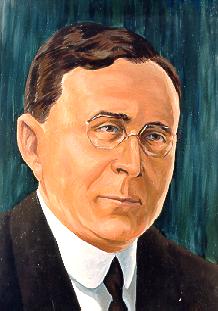
J. W. Chapman
- US Presbyterian evangelist
- associated with Moody
- Chardin
- Teilhard de Chardin, Pierre
- CHARISMATIC
- Charismatic movement
- CHARISMATIC MOVEMENT
-
- Emphasizes charismatic gifts (unusual or miraculous gifts such as speaking in tongues, healing, and raising the dead)
- Surged to prominence in 1950
- Charles, Thomas
- (1755-1814)
- Welsh Methodist
- Calvinistic preacher and Sunday School promoter
- See entry in 1911 Encyclopedia
- Charlier, Jean
- (1363-1429)
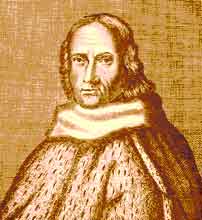
Jean Charlier
- (AKA: John Charlier of Gerson)
- French Roman Catholic theologian and Reformer
- See entry in Catholic Encyclopedia
- Charnock, Stephen
- (1628-1680)
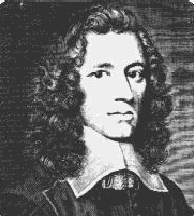
Stephen Charnock
- Puritan Presbyterian
- wrote
- The Existence and Attributes of God
- The Doctrine of Regeneration
- Chartres
- Fulbert de Chartres
- Chauncy, Charles
- (1705-1787)
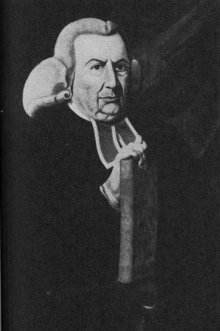
Charles Chauncy
- US Congregational critic of Jonathan Edwards and revival movement
- stressed intellect rather than the emotions
- CHEAP GRACE
-
- Term coined by Bonhoeffer
- Acceptance of forgiveness and God's gifts without repentance and obedience
- Chemnitz, Martin
- (1522-1586)
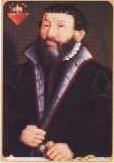
Martin Chemnitz
- Lutheran theologian
- consolidated Lutheranism after Luther
- CHICAGO SCHOOL OF THEOLOGY
-
- Liberal theological school associated with University of Chicago in early part of twentieth century
- Had a strong affinity with pragmatism and process theology
- Childs, Brevard Springs
- (1923-2007)

Brevard Springs Childs
- professor at Yale
- pointed out the decline of the biblical-theology movement
- known for canon criticism.
- CHRIST EVENT
- The incarnation. Used by those who think of revelation as a historical event instead of a disclosure of the nature and attributes of Christ.
- CHRISTIAN ETHICS
-
- Ethics is both teleological (is done in reference to eternal bliss in heaven, greatest happiness as God's will) and deontological (is done in reference to obedience to God's will as good because God says so, or it is His will that it be so, etc.).
- See Agapistic Ethics
- CHRISTIAN EXISTENTIALISM
- Protestant neo-orthodoxy
- CHRISTOLOGY
-
- Study of Christ
- Functional christology
- Chrysippus
- (282-209 BC)
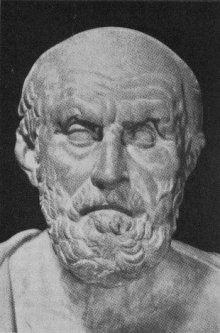
Chrysippus
- Stoic
- knowledge arises solely from perceptions
- class-concepts (ideas) are subjective but are nevertheless shared by all men as a common rationality, hence the existence of common sense and innate ideas
- truth is that which accords with common sense as the common consent of rational men.
- Chrysostom, John
- (347-407)

Chrysostom
- Forthright, eloquent preacher in his home city, but was kidnapped and forced to become the Archbishop of Constantinople
- his direct and frank preaching caused Empress Eudosia to banish him because she thought he insulted her
- he was soon recalled, but not tamed
- He was banished again where he died in the desert
- 30 years later his bones were brought back and buried with great pomp
- "Chrysostom" means "Golden Mouth"
- wrote On the Priesthood
- CHURCH GROWTH MOVEMENT
- A movement begun by Donald McGavran in 1961 to study and teach what causes congregations to grow. Concentrates on secular reasons.
- Clairvaux
- See Bernard of Clairvaux
- Clarke, Adam
- (1762-1832)
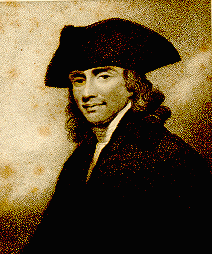
Adam Clarke
- English Methodist
- wrote Bible commentary
- See entry in Christian Courier
- CLASSICAL PHYSICS
-
- The study of matter and energy and their relationship which was developed before Einstein's relativity theories.
- Also called Newtonian physics
- Contrasted with Relativity physics
- Clement of Alexandria
- (c 150-220)
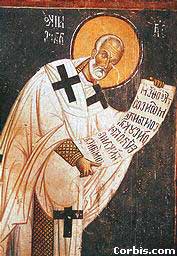
Clement of Alexandria
- Greek theologian
- head of school of Alexandria
- said "Philosophers are children until they have been made men by Christ."
- CLOSED CONTINUUM
- The universe is bound and governed by fixed and inviolable natural laws, so that miracles are impossible (Bultmann).
- Clowney, Edmund P.
- (1917-2005) Edmund P. Clowney
- Presbyterian pastor and professor of practical theology at Westminster
- Wrote
- Eutychus (and His Pin) (1960)
- Preaching and Biblical Theology (1961)
- Called to the Ministry (1964)
- CM* Christian Meditation (1979)
- First Peter: The Way of the Cross (1988)
- The Unfolding Mystery (1989)
- The Church (1995)
- Preaching Christ in all of Scripture (2003)
- How Jesus Transforms the Ten Commandments (2007, published posthumously)
- See entry in Westminster Theological Seminary
- Cocceius, Johannes
- (1603-1669)
- German reformed theologian
- developed idea of the covenants of works and grace
- federal theology.
- Coffin, Henry Sloane
- (1887-1954)
- US Presbyterian
- taught at Union Theological Seminary
- ecumenical leader
- advocated Social Gospel
- wrote
- In a Day of Social Rebuilding
- The Meaning of the Cross
- COGITO ERGO SUM
- "I think, therefore I am" Descartes
- COGNITIVIST ETHICS
-
- A Metaethical theory which holds that ethical terms and statements are informative.
- Includes
- Also see Non-cognitivist ethics
- Cohen, Hermann
- (1842-1918)
- professor at Marburg
- wrote Ethik
- Neo-Kantian
- COHERENCE
- See Coherence theory of truth
- COHERENCE THEORY OF TRUTH
- An idea or proposition is true if it fits, if it is consistent with, or if it is necessitated by the totality of truth of which it is a part.
- Colet, John
- (c 1467-1519)
- Dean of St. Paul's
- friend of Erasmus
- Collins, Anthony
- (1676-1729)

Anthony Collins
- Deist who said that since biblical writers were freethinkers, so should we be
- there is no real correspondence between OT prophecies and the life of Christ
- wrote
- A Discourse of Free Thinking
- Discourse on the Grounds and Reasons of the Christian Religion
- COMMANDMENT
- See First commandment
- COMPATIBILISM
-
- Soft Determinism
- reconciliationist ethics
- COMPATIBILISTIC
- See Compatibilistic freedom
- COMPATIBILISTIC FREEDOM
- Human freedom is not inconsistent with God's having rendered certain what is to happen.
- COMPLEMENTARITY
- See Uncertainty Principle
- COMPLEMENTARITY PRINCIPLE
- see Uncertainty Principle
- Comte, Auguste
- (1798-1857)
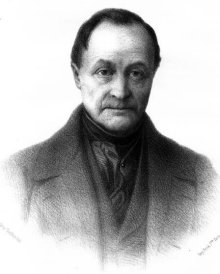
Auguste Comte
- French philosopher who founded positivism
- Wrote Cours de philosophie positive (6 vol.)
- Society goes through three stages:
- theological stage where everything is attributed to supernatural beings (highest form is monotheism)
- metaphysical stage where everything is attributed to abstract forces
- scientific or positive stage where laws or relationships of phenomena are clearly known
- This third stage has a positive social order (stressing orderliness and progress) and positive religion (worship directed not to God but to humanity).
- CONCEPTUAL PRAGMATISM
-
- A version of the pragmatic theory of meaning, knowledge, and verification advanced by C. I. Lewis, where he said that knowledge is viewed as the joint product of experience and of the activity of thought.
- Unlike Kant's forms, Lewis's forms of thought are alternative and culturally determined conceptual schemes.
- They are not the universal and necessary forms of all minds.
- CONCERN
- See Ultimate concern
- Condition
- See Necessary condition
- CONE, JAMES H.
- (1938-____)
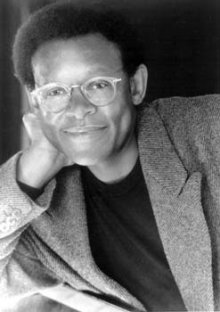
James H. Cone
- Black theologian
- wrote
- Black Theology
- Black Power
- spokesman for black theology
- CONFIRMABILITY
- See Confirmation
- CONGRUISM
-
- A form of Calvinism which holds that God renders certain what occurs, but that He does so by working with the human will, so that the human being freely chooses that which God intends.
- CONJUNCTION
- See Constant conjunction
- CONNECTION
- See Necessity
- CONSCIENCE
- See Moral conscience, ethics based on
- CONSEQUENT
- See Consequent nature
- CONSEQUENT NATURE
- The concrete actuality and activity of God in relation to the process of the world (A. N. Whitehead).
- CONSERVATION
- See Conservation principle
- CONSERVATIVE
-
- One who endeavors to maintain or preserve that which has been
- in theology, one who emphasizes holding to the authority of the Bible's teachings.
- Opposite to Liberals.
- CONSTANT
- Constant conjunction
- Constantine the Great
- (c 275-337)

Constantine
- Roman emperor who accepted Christianity in 313, thus establishing Christianity as the official religion of Roman Empire; presided over the first General Christian Council at Nicaea
- he was not baptized until days before he died so that he might enter heaven with as few sins as possible.
- CONSTRUCTIVE THEOLOGY
-
- The attempt to synthesize or formulate a theology and especially the work of a group of non-evangelical American theologians formed in the 1970s.
- Believing the traditional or orthodox theology to be no longer tenable, they have attempted to reshape doctrines to suit the modern world.
- CONTINGENT BEING
- Something that does not exist in and of itself but depends for its existence upon some other being.
- CONVENTIONALISM
-
- Poincare's theory of knowledge, where he said that necessary or a priori knowledge as it is found in mathematics or logic is conventional, being a choice among a number of possibilities and incapable of validation either rationally or empirically.
- Conwell, Russell H.
- (1843-1925)
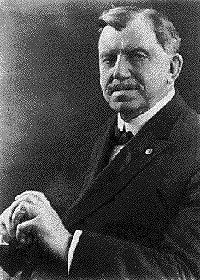
Russell H. Conwell
- Baptist
- preached a sermon "Acres of Diamonds" which brought in enough money to build Tremont Temple.
- Cook, Francis
- (1747-1814)
- second best Methodist preacher next to John Wesley
- at age 70 he volunteered for missionary work and died among the West Indians.
- Cooke, Henry
- (1788-1868)
- Irish Presbyterian opposed liberalism
- "the champion of orthodoxy"
- pastored one church for 40 years.
- Cooper, A. A., Seventh Earl of Shaftesbury
- (1801-1885)

A. A. Cooper
- Served in British Parliament
- headed Lunacy Commission for humane treatment of insane
- promoted passage of female and child labor laws.
- CORRESPONDENCE THEORY OF TRUTH
-
- An idea or proposition is true when it accurately and adequately resembles or represents the reality it is supposed to describe.
- E.g., The statement, "It is raining now" is true if in fact rain is falling.
- COSMOLOGICAL (CAUSAL) ARGUMENT FOR EXISTENCE OF GOD
-
- An argument for the existence of God based on the view that since every event or phenomenon has a cause, the universe itself must have a cause and this cause is God
- Every effect must have a cause outside itself. Since the world is an observable effect, it must have a cause outside itself. This cause must be God.
- COSMOLOGY
-
- The study of the origin and structure of the universe
- Though more specific in subject matter than ontology, metaphysics, or natural science, it cannot be sharply distinguished from them.
- Cotton, John
- (1585-1652)

John Cotton
- US Anglican Puritan pastor in Boston for 21 years
- forced out of England by Archbishop Laud
- advocated exile of Roger Williams and Anne Hutchinson
- wrote
- The Keyes of the Kingdom of Heaven
- The Way of the Churches of Christ in New England
- Cousin, Victor
- (1792-1867)
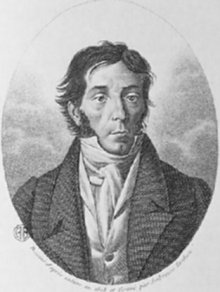
Victor Cousin
- French educational leader and philosopher
- founder of the eclectic school
- He lectured at the Sorbonne from 1814 until 1821, when political reaction forced him to leave
- Recalled to teaching in 1828, Cousin was named in 1830 to the council of public instruction and was made councillor of state.
- Coverdale, Miles
- (1488-1568)
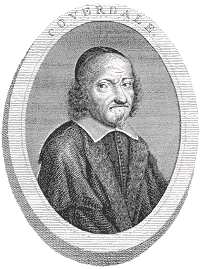
Miles Coverdale
- English Reformer
- Anglican
- translated first complete English Bible (Great Bible and Geneva Bible)
- assisted William Tyndale
- bishop of Exeter
- exiled under Mary Tudor.
- Cranmer, Thomas
- (1489-1556)
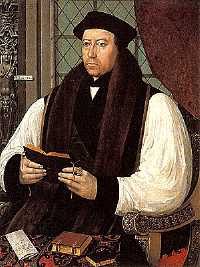
Thomas Cranmer (young)
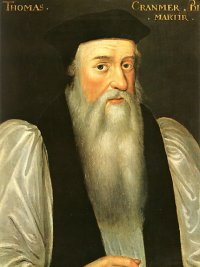
Thomas Cranmer (old)
- English Reformer
- Archbishop of Canterbury
- Supported Henry VIII in effort to divorce Catherine of Aragon
- introduced moderate reforms
- revised Anglican liturgy produced first and second Book of Common Prayer
- martyred for treason and heresy under Mary Tudor
- recanted under duress, he denied his recantation while being burned at stake.
- Croce, Benedetto
- (1866-1952)

Croce
- Italian critic, philosopher, politician, historian
- main thesis art is intuition
- wrote Aesthetic as Science of Expression and General Linguistic (1902)
- Cromwell, Oliver
- (1599-1658)
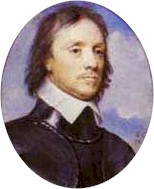
Oliver Cromwell
- Congregational Puritan
- member of Parliament
- led Parliamentary army during Civil War
- after execution of Charles I, Cromwell became Lord Protector of England
- refused crown.
- Cromwell, Thomas
- (c1485-1540)
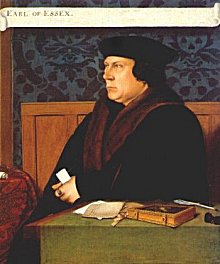
Thomas Cromwell
- English Reformer
- assistant to Cardinal Wolsey
- member of Parliament
- was vicar-general under Henry VIII
- supervised dissolution of monasteries
- encouraged translation and publication of Great Bible
- tried to align Henry VIII and German Lutherans
- beheaded for treason.
- CULTURAL ANTHROPOLOGY
-
- Says "Religion and the concept of God fulfill certain specific functional needs of individuals and groups" (Malinowski).
- Religion is an attempt to give prescientific explanations of the mysteries of life (Tylor).
- CULTURAL RELATIVISM
-
- See Sociological Relativism
- Also called Axiological relativism or Moral relativism
- Cuyler, Theodore Ledyard
- (1822-1909)

Cuyler
- Plymouth Brethren preacher
- wrote 22 devotional books
- Cyprian
- (c200-258)

Cyprian
- Wealthy lawyer who was converted because of his disgust with this evil world
- Bishop of Carthage
- contributed to doctrine of the church
- believed in the equality of all bishops in spite of Rome's exclusive claims
- said "He who does not have the Church for his mother cannot have God for his Father"
- Cyril of Alexandria
- (376-444)
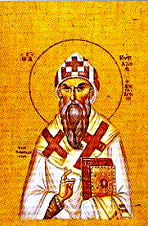
Cyril of Alexandria
- theologian who emphasized unity of the person of Christ
- doctor of the incarnation
- battled the Nestorian heresy by establishing Mary's authentic role as "God-bearer" and not only "Christ-bearer"
- For his writing about Theotokos, he was declared a doctor



